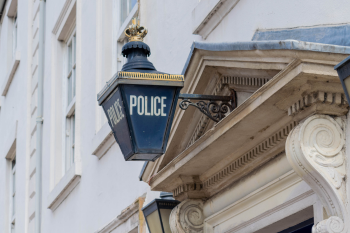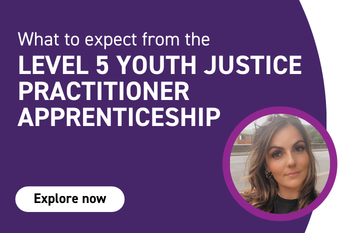Have you ever wondered why qualifications each have a level, what the difference between them is, and how they relate to standard school, further education, and higher education levels?
Qualifications are given levels to help indicate the degree of competence and skills gained through the qualification, and help people progress their knowledge and understanding through educational routes. But the answer isn’t always clear.
Here we take a look at each of the 9 levels in England, Wales and Northern Ireland (you can compare qualifications in Scotland, but they have a different level system) and explore who they might be good for.
Jump to:
Entry Level Qualifications
Each entry level qualification is available at three sub-levels – 1, 2 and 3. Entry Level 3 is the most difficult.
Entry level qualifications are:
- Entry level certificate (ELCs)
- Entry level awards and diplomas
- Entry level English for speakers of other languages (ESOL)
- Entry level essential or functional skills
- Skills for Life
Entry level qualifications are perfect for those wanting an introduction to or foundation awareness of a topic. It usually sets a minimum standard of competence in areas that most adults are expected to be equipped with. They provide the framework of knowledge and skills that are seen to be needed to be able to access and take part in all aspects of life.
For example, Skills for Life areas might include digital skills, such as being able to use a computer and access the internet. Monitoring the percentage of the population that have these Skills for Life helps the government understand the overall skills development of the nation.
Entry Level Skills such as ESOL are often used as a minimum standard for visa and work applications for foreign nationals.
Levels 1-3
These levels are often associated with mandatory and further education, such as GCSEs and A-Levels. However, a lot of vocational training in the workforce is also at this level. Qualifications at this level provide an in-depth core understanding and essential knowledge of topics and practices needed to be successful in a job role.
Many roles require qualification to this level as a pre-requisite to employment. You will find qualifications such as Fire Sprinkler Installation and apprenticeships for policing, fire and rescue, and other public services at this level.
| Level 1 | Level 2 | Level 3 |
|---|---|---|
| First certificate GCSE – grades 3, 2, 1 (or grades D, E, F, G) Level 1 awards and diplomas Level 1 certificate Level 1 ESOL Level 1 essential or functional skills Level 1 national vocational qualifications (NVQ) Music grades 1, 2 and 3 | CSE – Grade 1 GCSE – grades 9, 8, 7, 6, 5, 4 (or grades A*, A, B, C) Intermediate apprenticeship Level 2 award Level 2 certificate Level 2 diploma Level 2 ESOL Level 2 functional skills Level 2 national diploma Level 2 NVQ Music grades 4 and 5 O level – grade A, B or C | A Level Access to higher education diploma Advanced apprenticeship Applied general qualification AS Level International Baccalaureate diploma Level 3 award Level 3 certificate Level 3 diploma Level 3 ESOL Level 3 national certificate Level 3 national diploma Level 3 NVQ Music grades 6, 7 an 8 T Level Tech level |
Levels 4-6
Qualifications from levels 4-6 are often seen in the workforce, with many of them indicating a higher level of competence within a profession. Many certificates and diplomas are funded by workplaces as a method of upskilling their employees.
You will also find many of these qualifications listed as desirable or essential on job applications. Professions such as human resources, learning and development, and marketing, usually desire a certificate or diploma from a relevant awarding organisation.
They are a core route of progression for individuals as well. For example, those who wish to progress in policing from a constable to a detective role may be required to have a Level 6 Diploma in Conducting Serious and Complex Investigations (or other depending on their existing qualifications and specialism routes available).
| Level 4 | Level 5 | Level 6 |
|---|---|---|
| Certificate of higher education (CertHE) Higher apprenticeship Higher national certificate (HNC) Level 4 award Level 4 certificate Level 4 diploma Level 4 NVQ | Diploma of higher education (DipHE) Foundation degree Higher national diploma (HND) Level 5 award Level 5 certificate Level 5 diploma Level 5 NVQ | Degree apprenticeship Degree with honours – for example bachelor of the arts (BA) hons, bachelor of science (BSc) hons Graduate certificate Graduate diploma Level 6 award Level 6 certificate Level 6 diploma Level 6 NVQ Ordinary degree without honours |
Level 7 and 8
Qualifications at this level are usually help by senior management or subject matter experts. They usually involve an element of thought leadership and how to contribute to the overall development of the profession or topic. They will often also include competences such as leadership skills, separate from technical knowledge.
For some sectors, competence at this level is also a requirement. For example, there is the expectation that qualifications for those in policing at Inspector rank or above are sat at level 7.
| Level 7 | Level 8 |
|---|---|
| Degree apprenticeship Integrated master’s degree, for example master of engineering (MEng) Level 7 award Level 7 certificate Level 7 diploma Level 7 NVQ Master’s degree, for example master of arts (MA), master of science (MSc) Postgraduate certificate Postgraduate certificate in education (PGCE) Postgraduate diploma | Doctorate, for example doctor of philosophy (PhD or DPhil) Level 8 award Level 8 certificate Level 8 diploma |
How are the levels for each qualification set?
The level of a qualification is decided against strict criteria from regulators such as Ofqual. Awarding Organisations like SFJ Awards develop qualifications by collaborating with subject matter experts and employers, to rigorously quality assure the content that learners need to show competence in.
Read more about how we design qualifications in England and Wales →
SFJ Awards has a range of qualifications from levels 1-6. We work across all protective services, including policing and law enforcement, criminal justice, fire and rescue, and security.
Explore our qualifications




